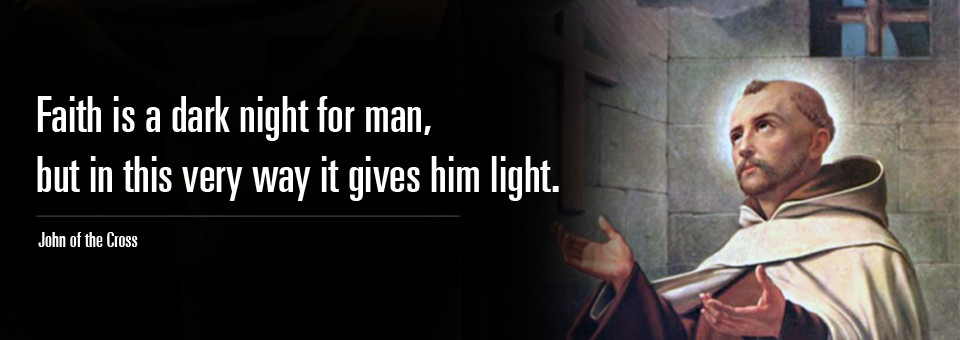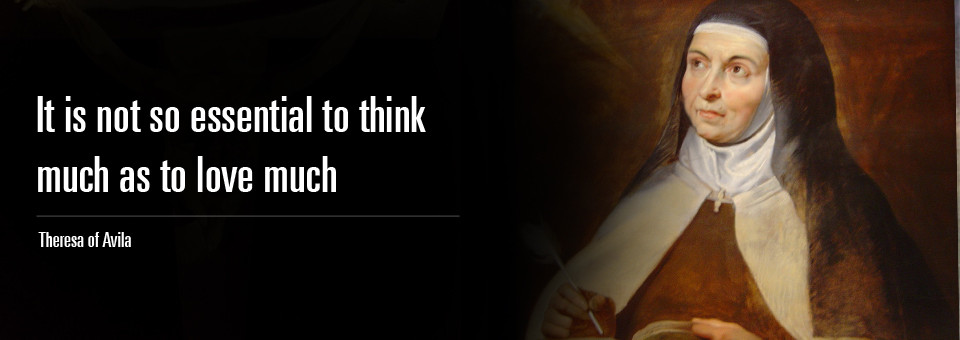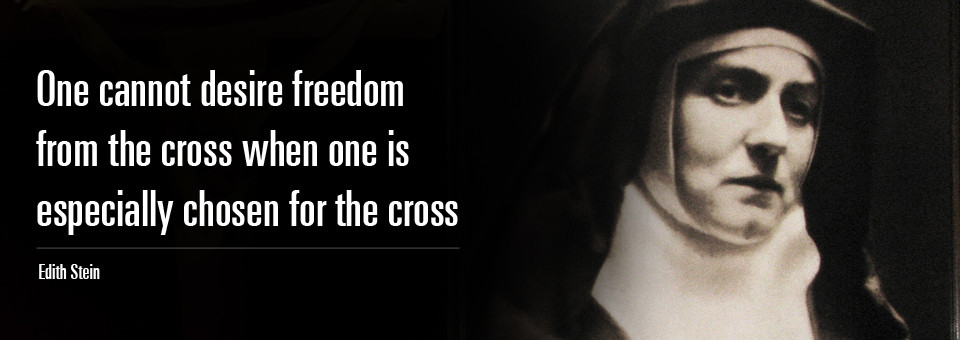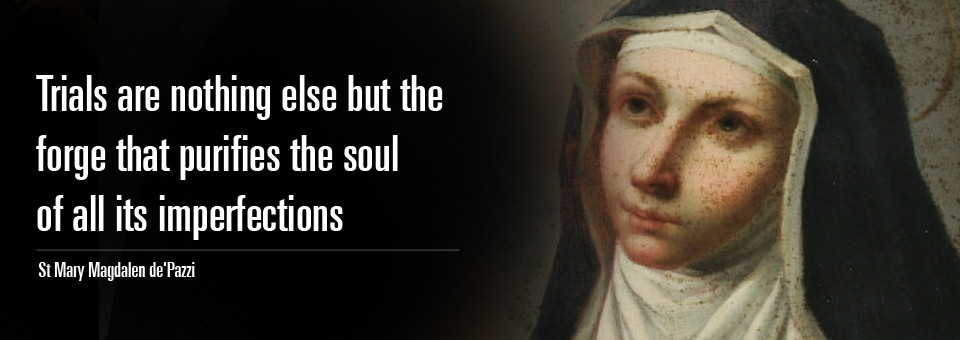
From the start, Mariam was “a miracle child “. Having lost twelve children at birth, her parents went to a pilgrimage on foot to the grotto of the Nativity in Bethlehem, a distance of 170 km away from home. Nine months later she was born in Abellin. She was baptized and confirmed according to her family’s Greek-Catholic custom.
When she was three, both her parents died within a few days of each other. Her uncle adopted her but when she refused the marriage that he was proposing, he turned against her violently. She was then just a teenager, 13 years old. Things only got worse when trying to find comfort with a former servant of her family, she was nearly killed with a scimitar by this man who wanted to convert her to Islam.
Once again, the supernatural entered into her life. She related later that she truly died at that moment, and that it seemed to her that she entered Paradise, saw the Virgin, the Saints and her parents, the Glorious Trinity. But her time had not yet come; and without knowing how, she woke up in a grotto, was cared for by a young lady all dressed in blue, who looked like a Sister, and whom Mariam had recognized as the Virgin Mary.
She joined the Sisters of Saint Joseph of the Apparition, but these good sisters were rather disconcerted when two days per week the young Arab sister relived Jesus’ Passion and received the stigmata (that, in her simplicity she believed to be an illness). Since she could not continue there, when she was 21 she joined the Discalced Carmelite Sisters of Pau, where she received the name of Sr Marie of Jesus Crucified. She insisted on being a lay sister, being always at ease in serving others, and having difficulty reading and reciting the Divine Office. Her simplicity and her generosity conquered many hearts.
And her words in this ecstasy were the fruit of her life: “Where there is charity, there is God. If you are attentive about doing good to your brother, God will be attentive about you. If you dig a hole for your brother, you will be digging it for yourself; it is you yourself who will fall into it. But, if you make heaven for your brother, you will be making it for yourself.
She always kept in front of herself her real dimension. In fact she spoke of herself as being called “the little nothing” – “A humble soul is happy to be despised, to be nothing. She is not attached to anything and is never irritated with anybody. A humble soul is happy, joyful always and content everywhere. She considers herself blessed and the Lord is ever-present in her heart.”
In 1870, she was sent with a small group to found the first Carmelite monastery in India, in Mangalore. The journey by ship to there was in itself a complete adventure, and three sisters died before arriving. Her extraordinary experiences continued without preventing her from confronting the heaviest work and the problems of a new foundation of which she was in fact the soul.
During her very common ecstasies, sometimes they saw her with a beaming face in the kitchen or elsewhere; sometimes she participated in spirit in what happened in the Church such as at the time of the persecutions in China; sometimes the devil seemed to take possession of her, but only in an external manner, making her live through terrifying torments and fights. A lot of incomprehension began then to occur around her, even putting in doubt the authenticity of what she lived. The tensions created around her ended up in provoking her return to the Carmel of Pau in 1872.
Though nearly illiterate she composed poems in her enthusiastic gratitude to God, poetry of great beauty, full of freshness and of a charm completely oriental, where the whole creation sings to its Creator… or in a wink of an eye she would be attracted to the summit of a tree, on a branch that would not even support a bird, by the fierce yearning of her soul toward the Lord.
“Everyone is sleeping. And God, so full of goodness, so great, so worthy of praises, is forgotten! … no one thinks of Him! … See, nature praises Him; the sky, the stars, the trees, the grass, everything praises Him; and man, who knows his kindness, who should be praising Him, is sleeping! … Let us go and wake the universe up! “
Numerous also were those that came to her looking for consolation, advice, prayers, and that left illuminated, fortified by their meeting.
Shortly after her return from Mangalore, she began to speak of the foundation of a Carmel in Betlehem; the obstacles were numerous, but were progressively lifted, and sometimes contrary to all expectations. The Lord himself “showed” her the place and the construction. It was during the summer 1875 that a small group of nuns embarked on this adventure. Mariam who alone could speak Arabic was more especially charged to supervise the work; “as strong as an ox”, she soon gained the sympathy of the workers, and the community could move in to the new monastery on November 21, 1876, while some work continued.
While carrying water to the workers, she fell on a staircase and broke an arm. Gangrene set in very quickly and she died within a few days, August 26, 1878, at 33 years of age.
She opened to us the invisible world.
And Mariam was especially attracted by the Holy Spirit, this Spirit that hovered over the waters, “in the beginning.”
“Address yourselves to the Dove of Fire, to the Holy Spirit who inspires all..”
“The ego is that which ruins the world. Those who are self-centered bring sadness and anguish with them. One cannot have God and the self together…One prays, one implores, and the prayer does not rise up, does not reach God. He who has no egoism has all virtues and peace and joy.” But with the Holy Spirit, even “a drop” only, all becomes possible.
This simple prayer dwelt always in her heart:
Holy Spirit, inspire me.
Love of God, consume me.
On the true path, lead me.
Mary, my Mother, look down upon me.
With Jesus, bless me.
From all evil, from all illusion,
From all danger, preserve me.
Typical saying of Mariam Boaurday
The proud person is like a grain of wheat thrown into water: it swells, it gets big. Expose that grain to the fire, it dries up, it burns. The humble man is like a grain of wheat thrown in the earth – it disappears, it hides itself, it descends, it dies. But to revive in heaven..



